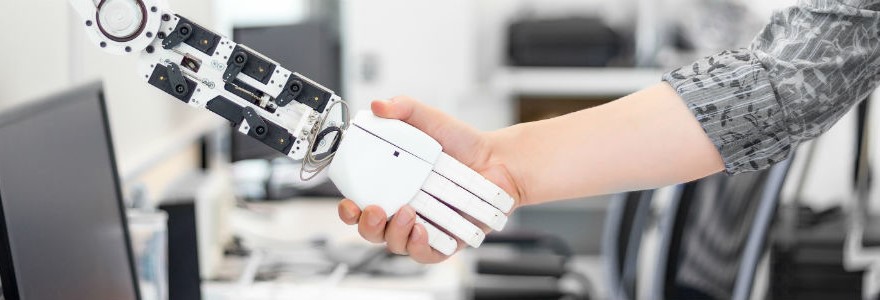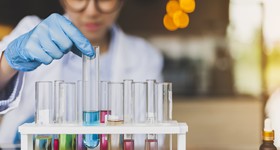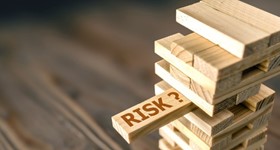Will AI change the landscape of the pharmaceutical industry in South Korea?

South Korea has always been a region that dominates in medical and pharmaceutical growth. With a strong growth rate of 10% annually and high emphasis on tech-integration, South Korea remains as the 10th largest pharmaceutical industry in the world. This shows that they are in a position to perform competitively against big players such as Europe and the US.
Innovation, research and development (R&D) have been the top priority to reinforce the technological competitiveness of the country, especially with Artificial Intelligence (AI )and Machine-Learning (ML) technologies. The Korean Drug Ministry expects the global AI healthcare market to grow by 60% annually after signalling a widened interest in the convergence of technology and healthcare. This will reach a value of USD750 million by 2020.
What are the factors to consider that can help South Korea reap the opportunities in this market?
-
Launching an AI-based medical device in South Korea
South Korea’s newly approved device is the “VUNOmed-BoneAge”, an image diagnostics device that uses deep learning. Developed by Vuno, a Korean Medical AI technology start-up, the device engine reads X-ray scans in real-time to determine patients’ skeletal age.
The start-up is currently in partnership with Asan Medical Centre in Seoul to raise its diagnostic accuracy by 8% whilst reducing time for the diagnosis by 40% as reported by American Journal of Roentgenology.
Vuno is already on a search to acquire other AI-powered image diagnostics devices approved within the first half of 2019, including those that analyse X-rays and CT scans to diagnose lung cancer and macular degeneration.
They are also working to obtain approval for diagnostic softwares that can predict the onset of cardiac arrest by analysing a person’s vital signs. The launch of this AI-powered medical device will be the first in the market and hopefully spark future launches of AI-powered devices.
-
Greater AI-investments by pharmaceutical giants
In 2019’s pipeline is a ₩42 billion five-year investment plan for domestic AI-research teams within South Korea. As part of the initiative, the Ministry of Science and ICT, together with the Ministry of Trade Industry and Energy, the Ministry of Food and Drug Safety and the Ministry of Health and Welfare, will be allocating this sum to nine selected research teams over the course of five years.
This is in an aim to ultimately consolidate all development work into a single pan-government program by 2020.
Pharmaceutical giants like Pfizer, Merck, GSK, Novartis, AstraZeneca, Sanofi-Aventis, and Otsuka are also expanding their investments in areas that could make significant contributions in reinforcing the technological competitiveness of the country with AI. This include areas such as clinical trials, scientific research with universities and research institutes, non-clinical and early clinical research and investments in bio-venture firms.
-
AI to develop new and improved drugs
Both South Korea’s pharmaceutical industry and its government have mentioned that they would be aggressively utilising AI in new drug development. This decision aims to overcome the problem of time-consuming and expensive development of new medication. For instance, a 300-page medical report that would take a year for researchers to scan through, can now be replaced by an AI-based machine that is capable of searching 1 million documents during the same period.
The Korea Pharmaceutical and Bio-Pharma Manufacturers Association (KPBMA) is taking the first step by launching a taskforce to support AI-based new drug development. It is currently also seeking to establish the New Drug Development AI Centre.
The government is intending to spend ₩10 trillion on this project to develop 20 new drugs over the next five years in collaboration with local pharmaceutical companies. There are also plans to form a ₩500 billion fund to help the local pharmaceutical companies expand their presence in the global drug market through the acquisition of promising drug makers in other countries.
Preparing for an AI future with precaution
South Korea will be adopting punitive measures to prevent any harm from the utilisation of AI technology. Harms include vulnerability to system faults, errors which can be vital when we are dealing with the healthcare industry and putting lives at stake. Technology protection devices are currently a priority to have in order to retain the country’s competitiveness as important as the development of technology.
The government is actively helping with the pharmaceutical sector’s introduction of AI, by designating AI-based drug development and innovation within healthcare as major tasks in the era of the Fourth Industrial Revolution.
Following President Moon’s New Year speech:
“A total budget of ₩1.5 trillion will be provided for the three major fundamental fields of data and AI. The implementation of a Korean regulatory sandbox system will enable the speedy verification of marketability for new technologies and products and also facilitate their launch.”
This reassuring support and the backing from the health and drug ministries’ with the above mentioned projects and initiatives will place South Korea in a position to reap great success by using AI to the benefit of its pharmaceutical and medical sector.
With that, we can expect 2019 to be a year of unprecedented opportunities for pharmaceutical professionals specialising wuthin AI tech, R&D and innovation in supporting this growing trend.
If you are a pharmaceutical professional in Korea and would like to find out more about these opportunities or how other organisations in Korea are implementing their talent strategies, please connect with us at singapore@realstaffing.com. You can also follow us on our LinkedIn page for other industry related insights within the market.




